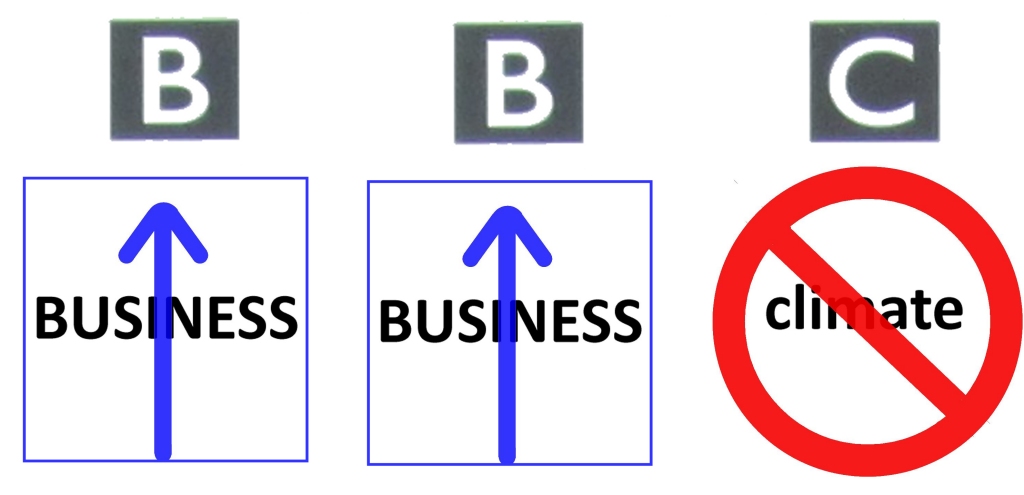BBC promotes growth & downplays climate
The BBC is reckless in continually promoting economic growth without warning about its climate dangers. (See a previous post Is Green Growth a Fantasy? or Kevin Anderson’s impressive interview in Climate targets ‘impossible’ unless rich cut emissions 10%}
What follows is the tail end of the BBC’s response to my complaint that there are no warnings. The complaint was not considered because I did not give a specific example. However, every business programme they broadcast is an example.
The BBC still says
But the BBC does not inform us on the dangers of economic growth to the climate. That is clearly a breach of the BBC’s mission and so is “a breach of the BBC’s standards”.
Request for review by Trustees
The complainant [Geoff Beacon] asked that [BBC] Trustees review the decision of the Senior Complaints Adviser that the appeal should not proceed.
[Geoff Beacon] said:
1) All BBC business output promotes growth.
2) No BBC business output notes its climate dangers.
He also enquired if he should complain about a few business programmes at random.
He objected to the BBC Audience Services’ stance whereby they wrote to him:
We can only investigate complaints when we are given a specific example of when a said incident occurred on output produced by the BBC. If you would like to give us a specific example of a story on economic growth that we covered (transmission date, programme etc), where you feel it would have been relevant to the story to mention environmental issues, we can investigate and respond in detail.
He stated that his complaint is that:
The BBC never mentions the economic causes of the environmental disaster that is clearly on the horizon. Even if this disaster is not clear to the BBC, it is clear to many scientific observers, who deserve a mention. Does the requirement to give a specific example of something that never happens, mean that it is impossible to make a complaint to the BBC on this issue?
The Panel’s decision
The Panel noted the complainant’s appeal to the Trust, the reply from the Senior Complaints Adviser and the challenge to the Senior Complaints Adviser’s decision. The Panel agreed with the decision of the Senior Complaints Adviser.
The Panel then noted that the choice of news content was for the Executive to determine.
As the Royal Charter (article 38, (1) (b) and article 38, (1) (c)) sets out, “the direction of the BBC’s editorial and creative output” and its “operational management” are specifically defined as duties of the Executive Board and ones in which the Trust does not get involved, unless, for example, they relate to a breach of the BBC’s standards. In this case, the Panel did not consider the complainant had raised any evidence that there had been a breach in the BBC’s standards by making a very general assertion without referring to any content, and therefore the Panel did not consider that his complaint raised a matter for the Trust.
The Panel therefore concluded that, were the complaint to come to it on appeal, there would be no reasonable prospect of it upholding the complaint.

